We’ve polled 1,000 UK parents to peel back the lid on attitudes to childhood obesity and the role of snacking in a balanced diet. Our research reveals shoppers want retailers to give healthier snacks such as yoghurt more support, and regulators to give more clarity
This research was commissioned by The Grocer and carried out by Toluna/Harris independently from Yoplait.
1. ‘Kids’ diets are less healthy than in our day,’ say half of parents
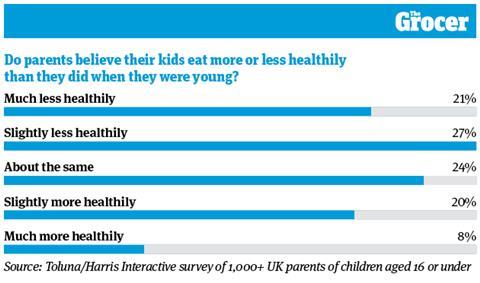
Kids in the UK are overfed and undernourished. Obesity rates just won’t budge and calcium and vitamin D deficiency is on the rise, says the NHS. Our research suggests a reason why: 48% of parents say their kids eat less healthily than they did.
“As the market leader in children’s yoghurt, it’s not just our responsibility to be a positive voice for children’s nutrition in the UK, it’s our duty to act,” says Yoplait UK head of marketing Ewa Moxham. “We need to educate consumers on the nutritional benefits of kids’ yoghurts and how important it is for children’s development that they’re eating nutrient-dense foods. We need to work with retailers, health organisations and policymakers to make this happen.”
2. Taste is king for parents when choosing kids’ snacks
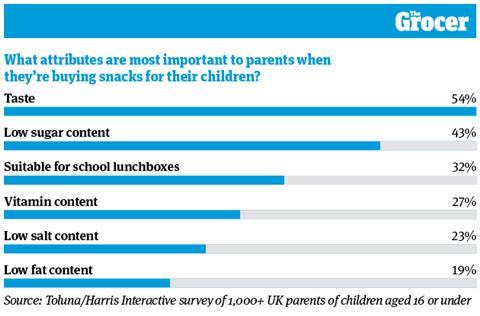
Anyone who’s ever tried to feed a six-year-old sardines will understand. It doesn’t matter how healthy a food is, if the taste doesn’t appeal, parents will have a fight on their hands getting kids to eat it.
So it’s no wonder taste is the top consideration for parents, rated most important by 54%. Low sugar content is next most important (43%), followed by being lunchbox friendly (32%), a source of vitamins (27%), low in salt (23%) and fat (19%).
While taste is king for both sexes, women are more likely to be concerned about sugar and school lunchbox suitability – 47% of women consider sugar content, versus 40% of men; 36% consider if snacks are lunchbox friendly, versus 27% of men.
3. Fruit and yoghurt get the parental seal of approval as daily snacks
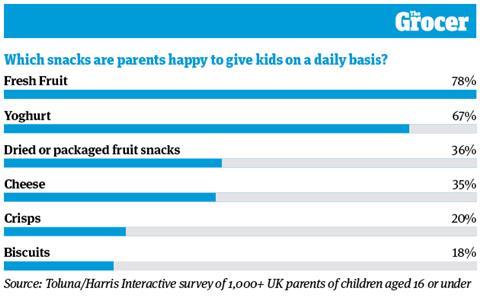
The 5 a day message seems to be getting through. Over three quarters of parents are happy to give their kids fresh fruit snacks every day. There’s a close second, though: 67% are happy to give yoghurts on a daily basis. That makes fruit and yoghurt the most popular kids’ snacks by far (among parents, at least).
On a less healthy note, 20% are happy to give kids crisps and 10% are happy to give chocolate every day. “Our latest report – Kids’ Yoghurt & Consumers: a Relationship Turned Sour – shows that yoghurt has been swapped for energy-dense, low-nutrient foods like biscuits and crisps,” says Moxham. “It’s possible that sugar reduction policies have caused confusion and caused parents to move away from healthy yoghurts to junk food.”
4. Most parents associate kids’ yoghurts with calcium
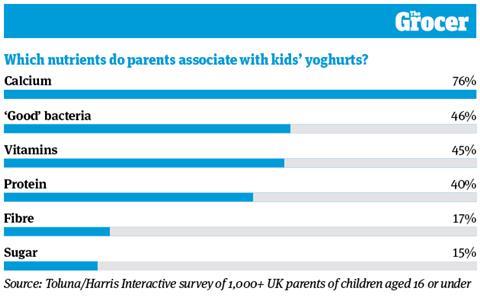
Understanding of the health benefits of kids’ yoghurts is fairly strong. More than three quarters (76%) of parents associate yoghurts with being a source of calcium.
After calcium, ‘good bacteria’ is the attribute parents are most likely to associate with yoghurts (46%), followed by vitamin content (45%) and protein (40%). “For 15 years, Yoplait has been fortifying kids’ yoghurts with calcium and vitamin D and educating consumers about these benefits,” says Moxham.
“While we communicate these benefits on-pack, more needs to be done, so we’re launching a consumer-facing campaign to debunk myths and raise awareness about the role yoghurt can play in supporting children’s bone health and development.”
5. Yoghurt has too much sugar, say two in five
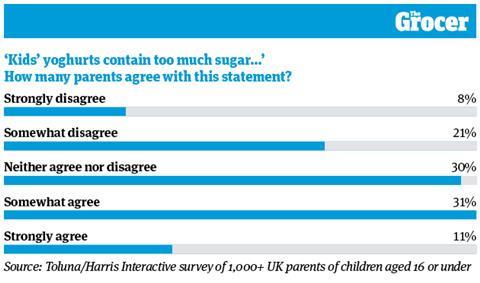
One of the myths surrounding yoghurt relates to its sugar content. More than two in five (42%) parents think kids’ yoghurts contain too much sugar. Nearly a third (31%) say they somewhat agree with the statement that children’s yoghurts contain too much sugar and 11% strongly agree. Just 8% strongly disagree with the statement and 21% somewhat disagree.
Moxham is keen to clarify matters. “Sugar content remains a concern for some parents,” she says. “Sugar levels vary across the category and by brand but 4% of yoghurt by weight is naturally occurring lactose, which isn’t a free sugar.”
Policymakers and health groups sometimes cite yoghurt-based desserts as examples of high-sugar items, which fuels misunderstanding of the category, Moxham adds. “The nutritional density of kids’ yoghurt versus yoghurt-based desserts can be widely different,” she says. “It’s important to understand that there must be a balance between yoghurts’ small sugar contribution and their significant contribution to the positive nutrients that support children’s bone health and growth.”
Fat content and the risk of kids making a mess with yoghurts are other potential turn-offs: 23% of parents agreed with the statement that yoghurts contain too much fat and 25% say they’re too messy.
6. Yoghurt is big up north
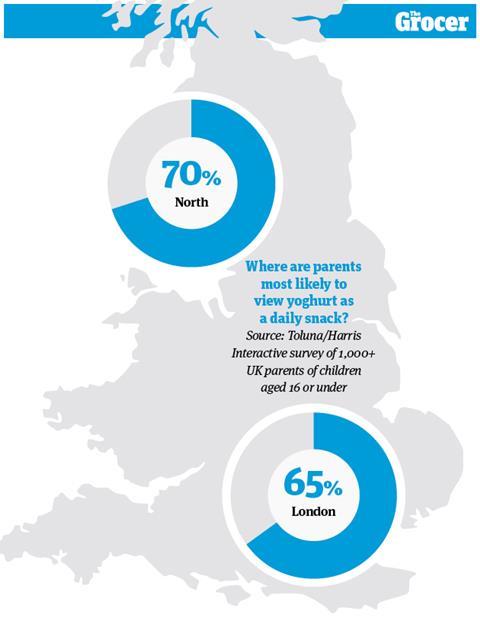
There are regional differences in yoghurt’s popularity: 70% of parents who live in the north of England, Scotland and Northern Ireland are happy to give their kids yoghurts every day. That’s versus 65% down south.
Parents up north are also more likely to give their kids fresh fruit on a daily basis, with 79% saying they’re happy to do so versus 78% down south and 74% in the Midlands.
Meanwhile, parents in the Midlands are the most likely to give their kids crisps every day: 23% say they’re happy to do so versus 20% of parents in the north and 18% in the south.
7. A third of parents understand the importance of vitamin D…
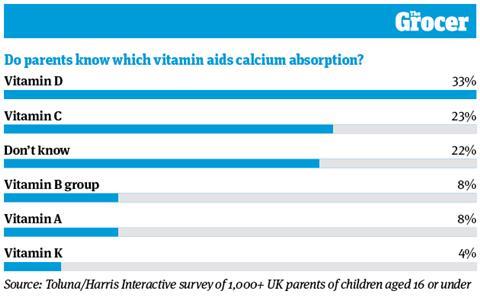
Vitamin D plays a crucial role in stimulating the intestines to absorb calcium into the body. And many parents recognise this: when we asked parents which vitamin promotes the absorption of calcium, 33% identified vitamin D.
This suggests that the efforts of dairy producers like Yoplait are paying off, although clearly more could be done. Nearly a quarter (23%) of parents wrongly believe vitamin C aids calcium absorption and 22% said they didn’t know.
Still, Moxham advocates a soft touch when it comes to spreading the word. “Kids’ yoghurts have many benefits but it’s important not to overwhelm parents with too much communication and information,” she says.
8. … but more women than men recognise vitamin D’s role
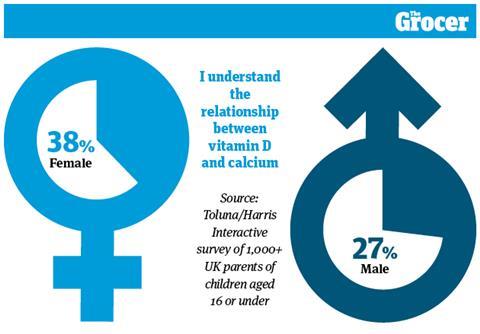
However, it seems women have a firmer grasp of the relationship between vitamin D and calcium in the body. Just 27% of men identified vitamin D as the vitamin that promotes the absorption of calcium in the body, versus 38% of women.
That’s not the only difference between the genders: 81% of women associate yoghurt with calcium compared with 71% of men. Women are also more likely to be concerned about the sugar content of kids’ yoghurts: 46% say they agree with the statement that they contain too much sugar (11% strongly agree and 35% somewhat agree) compared with 38% of men (12% strongly agree and 26% somewhat agree).
9. Strawberry is the number one kids’ yoghurt flavour
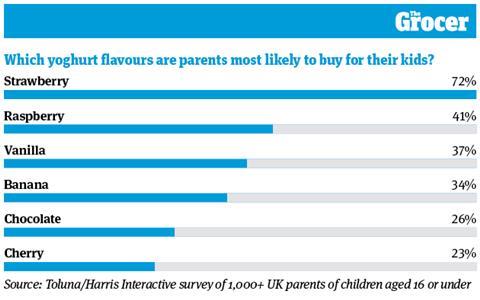
We also asked parents about which yoghurt flavours they are most likely to buy for their little ones. The results were resounding: 72% of parents are most likely to buy strawberry. That’s almost as many as the proportion that buy the two next most popular favourites, raspberry (41%) and vanilla (37%). Banana came in fourth (34%), followed by chocolate (26%) and cherry (23%).
Just 1% of our sample only buys natural yoghurt. Considering that taste is the number one consideration for parents when they buy snacks for their kids, this makes sense – and it’s clear that the classic children’s yoghurt flavours are still the most popular.
10. A third would need more info on health to buy more yoghurt
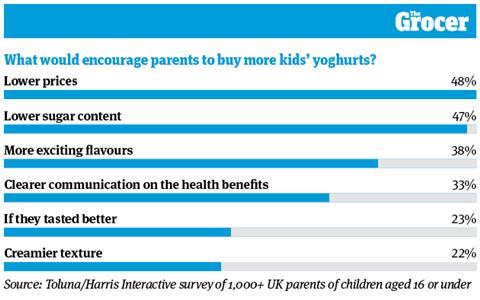
Yoplait has identified a £150m growth opportunity in kids’ yoghurts over the next five years if barriers to purchase can be overcome. But what exactly are those barriers?
It will be no surprise that lower prices – cited by 48% – would encourage most parents to buy more kids’ yoghurts. Next came lower sugar levels (47%), more exciting flavours (38%) and clearer communication on health benefits (33%).
That’s why Yoplait is splashing out on communications to do just that, says Moxham. “Our latest report marks the start of Yoplait’s campaign to champion and educate about the nutritional value of kids’ yoghurts… we’re appealing to retailers to work with us on our mission.”
Downloads
10 Charts_2024_Yoplait_Digital PDF
PDF, Size 0.28 mb








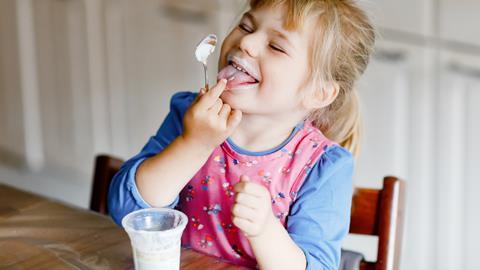

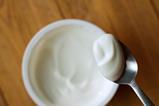
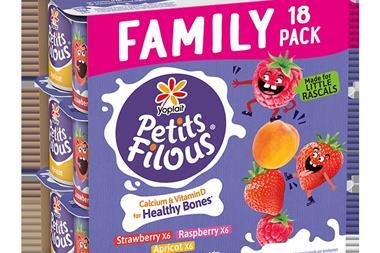
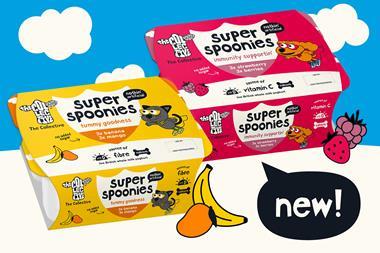
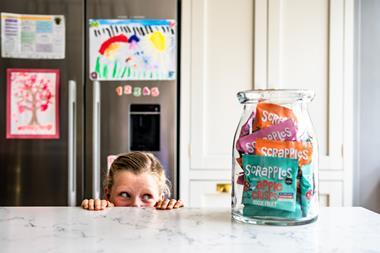
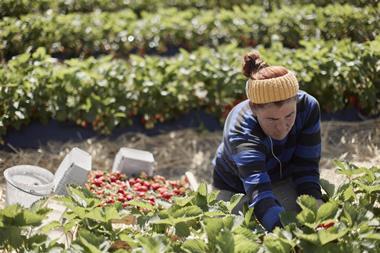
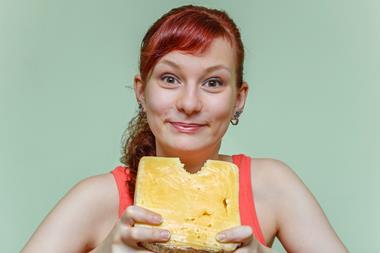




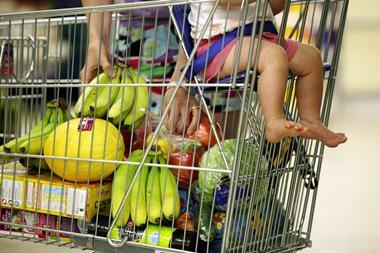
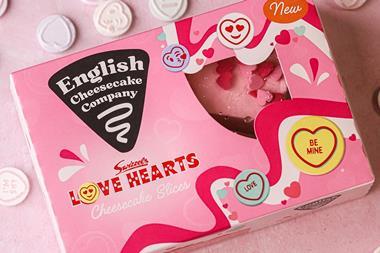

No comments yet